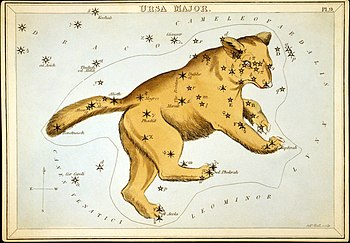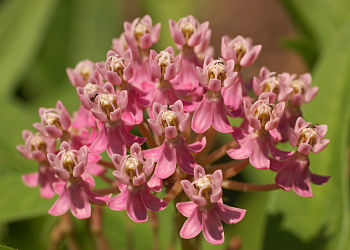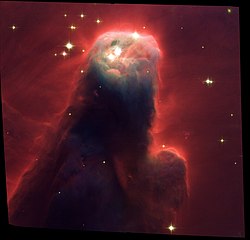|
Featured picture tools: |
These featured pictures, as scheduled below, appeared as the picture of the day (POTD) on the English Wikipedia's Main Page in March 2009. Individual sections for each day on this page can be linked to with the day number as the anchor name (e.g. [[Wikipedia:Picture of the day/March 2009#1]] for March 1).
You can add an automatically updating POTD template to your user page using {{Pic of the day}} (version with blurb) or {{POTD}} (version without blurb). For instructions on how to make custom POTD layouts, see Wikipedia:Picture of the day.Purge server cache
March 1

|
The Florida Box Turtle (Terrapene carolina bauri) is endemic to the U.S. state of Florida and the extreme southeastern portion of Georgia. It can be found in damp environments, such as wetlands, marshlands, and near swamps, but usually does not enter water deep enough to swim. Photo credit: Jon Zander
Recently featured:
|
March 2

|
Plate 9 from A familiar treatise on astronomy (1825) depicting Ursa Major, a constellation visible throughout the year in most of the northern hemisphere. In European star charts, the constellation was visualized with the 'square' of the Big Dipper forming the bear's body and the chain of stars as a long tail, even though bears do not have long tails. Image credit: Sidney Hall
Recently featured:
|
March 3

|
The Foyer de la Danse ("foyer of the dance") within the Palais Garnier, a 2,200-seat opera house on the Place de l'Opéra in Paris, France. A grand landmark designed by Charles Garnier in the Neo-Baroque style, it is regarded as one of the architectural masterpieces of its time. Photo credit: Eric Pouhier
Recently featured:
|
March 4

|
|
Located in the Urner Alps near the Grimsel Pass, Switzerland, the Rhône Glacier is the source of the Rhone River and one of the primary contributors to Lake Geneva in the far eastern end of the canton of Valais. Photo credit: Ikiwaner
Recently featured:
|
March 5

|
|
A panorama of Mikumi National Park in Mikumi, Tanzania. The mountain ranges at the mid-ground are the Uluguru Mountains, which border the park together with the Udzungwa Mountains. The Selous Game Reserve is directly adjacent to the south. With an area of 3,230 km2 (798,150 acres), it is the fourth largest national park in the country. Photo credit: Muhammad Mahdi Karim
Recently featured:
|
March 6
|
Duck and Cover was a civil defense film produced in 1951 by the United States federal government's civil defense branch shortly after the Soviet Union began nuclear testing. It was shown in schools as the cornerstone of the government's "duck and cover" public awareness campaign. The film suggests that by ducking down low in the event of a nuclear explosion, children would be safer than they would be standing, and explains some basic survival tactics for nuclear war. Film credit: Archer Productions, Inc.
Recently featured:
|
March 7

|
A Japanese woodblock print in the ukiyo-e style of blind monks examining an elephant. Originating from India, the story tells of a group of blind men who touch an elephant to learn what it is like. Each one touches a different part, but only one part. They then compare notes on what they felt, and learn they are in complete disagreement. Artist: Hanabusa Itchō
Recently featured:
|
March 8

|
A view of the solar eclipse of August 1, 2008, over Russia, Norway, and the Arctic Ocean, as seen by NASA's Terra satellite. In the area shown in the image, the sun was completely obscured for about two minutes. As Earth rotated, the shadow moved southeast across the surface. At the same time, the satellite crossed the Arctic with its path nearly perpendicular to the eclipse. Photo credit: NASA
Recently featured:
|
March 9

|
Swamp Milkweed (Asclepias incarnata) is a herbaceous plant species native to North America. It is found growing in damp to wet soils and is also cultivated as a garden plant for its attractive flowers that are visited by butterflies. Like most other milkweeds, it has sap with toxic chemicals, used to repel insects and herbivorous animals. Photo credit: Derek Ramsey
Recently featured:
|
March 10

|
A crab spider from the Diaea genus (Diaea evanida) with its prey, a moth, on a jonquil flower. Most Diaea species occur in Africa, Asia and the Australian region, with two found in the Americas and two in Europe. Photo credit: Fir0002
Recently featured:
|
March 11
|
Along the River During the Qingming Festival is a painting from China's Song Dynasty that captures the daily life of people from the period at the capital, Bianjing, today's Kaifeng. As an artistic creation, the piece has been revered, and court artists of subsequent dynasties have made several re-interpretive replicas. The painting is famous because of its geometrically accurate images of boats, bridges, shops, and scenery. Because of its fame, it has been called "China's Mona Lisa". Artist: Attributed to Zhang Zeduan
Recently featured:
|
March 12

|
|
A tractor drawn aerial belonging to the Los Angeles Fire Department. This type of fire truck has separate steering wheels for front and rear wheels (the steering device for the rear is sometimes a tiller rather than a true steering wheel, thus the alternate name "tiller truck"). It is often used in areas with narrow streets that prevent longer single-vehicle trucks from entering. Photo credit: Matthew Field
Recently featured:
|
March 13

|
The Anatomy Lesson of Dr. Nicolaes Tulp is a 1632 oil painting by Rembrandt depicting Dr. Nicolaes Tulp using a cadaver to explain the musculature of the arm to medical professionals. Anatomy lessons were a social event in the 17th century, taking place in lecture rooms that were actual theatres, with students, colleagues and the general public being permitted to attend on payment of an entrance fee. Artist: Rembrandt |
March 14

|
The American Tree Sparrow (Spizella arborea) is a medium-sized American sparrow found on the tundra or the northern limits of the boreal forest in Alaska and northern Canada. These birds migrate to the United States or southern Canada to spend the winter. Photo credit: Mdf |
March 15

|
|
German ammunition train wrecked by artillery fire, c. 1918. Rail transport was a dominant form of technology during World War I. Through railways, men and materiel could be moved to the front at an unprecedented rate, but they were very vulnerable at the front itself. Thus, advancing armies could only move forward at the pace that they could build or rebuild a railway, such as in the British advance across Sinai. Photo credit: Schutz Group Photographers |
March 16

|
A 1786 depiction of the first hot air balloon to carry humans, built by the Montgolfier brothers of Annonay, France. The flight occurred on 21 November 1783 from the grounds of the Château de la Muette in the western outskirts of Paris. Jean-François Pilâtre de Rozier, a physician, and François Laurent d'Arlandes, an army officer, flew aloft about 3,000 feet (1,000 m) above the city for a distance of 9 kilometres (6 mi), with a total flying time of 25 minutes. Artist: Unknown |
March 17

|
A map of the Greater Dublin Rail Network showing Suburban Rail, Luas and proposed Metro and Commuter lines. Public transport in Dublin is run by a number of transport operators and utilises electric and diesel trains, trams and an extensive bus network to provide service to the Greater Dublin Area. Map credit: Stabilo boss
Recently featured:
|
March 18

|
Sultan al-Atrash was a prominent Arab Druze leader, Syrian nationalist and Commander General of the Syrian Revolution (1925–1927). He fought against the Ottomans, French, and even against the Syrian government in days of dictatorship. One of the most influential figures in Syrian and Druze history, he played a major role in deciding the destiny of Jabal ad-Duruz and of Syria in general. Photo credit: American Colony, Jerusalem |
March 19

|
An illustration from U.S. Patent #223898 for the incandescent light bulb, issued to Thomas Edison on January 27, 1880. Edison's 1879 effort was the first commercially practical light bulb, coming 75 years after the incandescent lamp was invented by Sir Humphry Davy. Twenty-two other people also invented versions of the light bulb, but Edison's version was able to outstrip the others because of a combination of three factors: an effective incandescent material, a higher vacuum than others were able to achieve and a high resistance lamp that made power distribution from a centralized source economically viable. Image credit: Thomas Edison
Recently featured:
|
March 20

|
Moulting phase of a Southern Hawker dragonfly (Aeshna cyanea). Arthropods possess an exoskeleton which provides support and defends the animal from mechanical injury. The exoskeleton however, is rigid and limits growth, and is periodically shed. The new exoskeleton is initially soft but hardens after the moulting of the exuvium (the old one). Photo credit: Böhringer Friedrich
Recently featured:
|
March 21

|
The main donjon of Nagoya Castle, a Japanese castle found in Nagoya, Aichi Prefecture. It was destroyed in World War II, but the donjon was reconstructed in 1959, and there are plans to also rebuild Honmaru Palace, which was also located within the castle walls. Photo credit: Samuel Louie
Recently featured:
|
March 22

|
H.M.S. Pinafore was the fourth collaboration between Gilbert and Sullivan, and proved spectacularly successful on both sides of the Atlantic. However, United States copyright law of the time did not respect British copyright, and most of the productions in America—probably including the one here advertised—were unauthorised and gave no income to the creators. In order to attempt to gain American copyright on their next opera, The Pirates of Penzance, the entire company was taken to New York City in order to stage its official première. Image credit: A.S. Seer's Print
Recently featured:
|
March 23

|
Morning fog on the plains of East Frisia, a coastal region in the northwest of the German federal state of Lower Saxony. It connects Western Frisia (in the Netherlands) with the district of Nordfriesland ("Northern Frisia") in Schleswig-Holstein, all of which belong to the historic and geographic Frisia. Photo credit: Matthias Süßen
Recently featured:
|
March 24

|
Recreational fishermen cast their lines in front of the Oswego Harbor West Pierhead Light, ca. 1900, in Oswego, New York, United States. This lighthouse was built in 1889 and was in operation until 1934, when it was replaced by the current facility. Photo credit: Detroit Publishing Co.
Recently featured:
|
March 25

|
Pyrotechnics stunt exhibition by "Giant Auto Rodéo", a Belgian stunt performer group. Stunt performers typically perform stunts for films or television programs. Stunts are sometimes rigged so that they look dangerous while still having safety mechanisms, but often they are as dangerous as they appear to be. Photo credit: Luc Viatour
Recently featured:
|
March 26

|
French actress Sarah Bernhardt, in a promotional photograph for her performance as the titular character of William Shakespeare's Hamlet in London, holding the skull of Yorick. The portrayal of a character by an actor of the opposite sex is known as en travesti, a "pseudo-French" term which derives from the misinterpretation of travesti (the past participle of the French verb travestir) as a noun. Before the late 17th century, it was considered immoral for women to appear on stage, and as such, males (usually adolescents) would play female roles. With the Restoration of Charles II in 1660 women started appearing on the English stage in both female and male roles. Photo credit: James Lafayette
Recently featured:
|
March 27

|
The Cone Nebula is located about 2,600 light-years from Earth in the constellation Monoceros and is so named because of its apparent shape. The cone's shape comes from a dark nebula consisting of cold molecular hydrogen and dust in front of a faint emission nebula containing hydrogen ionized by S Monocerotis, the brightest star of NGC 2264, of which the nebula is part. This image shows the upper 2.5 light-years of the 7 light-year-long Cone Nebula. Photo credit: Hubble Space Telescope |
March 28

|
The American Green Frog (Rana clamitans) is native to the eastern half of the United States and Canada. Green frogs live wherever there is shallow freshwater: ponds, road-side ditches, lakes, swamps, streams and brooks. The green frog is abundant wherever it occurs. Photo credit: Derek Ramsey
Recently featured:
|
March 29

|
|
A ca. 1900 photochrom of the Hotel del Coronado, a beachfront luxury hotel in the city of Coronado, California, just across the San Diego Bay from San Diego. When it opened in 1888, it was the largest resort hotel in the world, and the first to utilize electric lighting. The hotel has been featured in numerous films, including Some Like It Hot, which was released on March 29, 1959. Image credit: Detroit Publishing Co.
Recently featured:
|
March 30

|
A World War I-era poster sponsored by the United States Department of Agriculture encouraging children to raise sheep to provide wool for the war effort. The poster reads, "Twenty sheep to clothe and equip each soldier / Boys and girls can help / Join a sheep club". Poster credit: Breuker & Kessler, Co.
Recently featured:
|
March 31

|
A Japanese woodblock print depicting three men, likely Commodore Matthew C. Perry (center), with Commander Anan and Captain Henry Adams, during their meeting with the Emperor of Japan. These meetings led to the Convention of Kanagawa which opened Japan to the West after centuries of isolation. The text may be a translation of President Millard Fillmore's letter to the Emperor. Artist: Unknown
Recently featured:
|
Picture of the day archives and future dates
